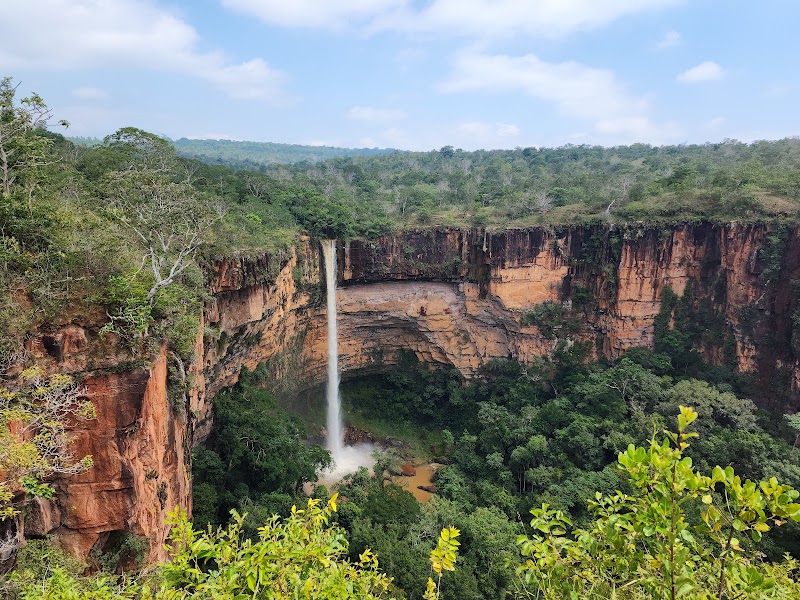
Exploring The Festival of Pantaneira Culture In Poconé, Mato Grosso
The Festival of Pantaneira Culture in Poconé offers a dynamic encounter with the heart of Brazil’s Pantanal. Combining cultural traditions with the raw natural environment, this June event invites travelers to experience the lively traditions and rugged landscape firsthand.
Wear Durable Footwear
Opt for sturdy, closed-toe shoes with good grip to handle dusty, uneven terrain around Poconé and festival grounds.
Stay Hydrated
The dry season heat can be relentless; carry at least 2 liters of water daily, and refill when possible to avoid dehydration.
Plan for Sun Exposure
Bring sun-protective clothing and a wide-brimmed hat. Sunscreen is a must to prevent sunburn during daytime outdoor events.
Arrive Early for Workshops
Participate in horsemanship and embroidery workshops early in the day to secure spots before areas fill.
Exploring The Festival of Pantaneira Culture In Poconé, Mato Grosso
Every June, Poconé in Mato Grosso vibrates with life as the Festival of Pantaneira Culture draws locals and adventurers alike toward the heart of Brazil’s Pantanal. This celebration is not just an event but an invitation to experience the Pantanal’s authentic spirit — a fiercely vibrant blend of tradition, nature, and community that demands appreciation and respect.
The festival centers around the local Pantaneiro way of life: cattle herding, folk music, dance, and food. You'll find the dusty streets of Poconé enriched by the sound of accordion melodies and the rhythmic pulse of traditional dance steps. This is a place where the Pantanal itself feels alive — the tall grasses whisper stories, the rivers challenge travelers with their steady push, and the sun insists you wear a hat.
For those planning to attend, timing is key. The festival runs during the dry season, typically June, when the landscape transforms from flooded wetlands to expansive grasslands. Trails to and from Poconé are accessible on foot, and though there is little elevation change, expect terrain that can shift from firm dirt paths to dusty, uneven roads. Comfortable, sturdy footwear is a must, as the area’s rustic charm comes with occasional sharp stones and patches of thorny brush.
Arriving early allows attendees to engage deeply with the cascades of local activities. You can witness rodeo events echoing Pantaneiro cowboy skills, sample regional fare like freshly grilled pacu fish and corn cakes, and buy handcrafted leather goods that carry the signature style of Pantanal artisans. Cultural workshops cover horsemanship to traditional embroidery, offering hands-on immersion.
Hydration is essential here. The dry heat emphasizes the Pantanal’s bold personality — alive and insistent. Bringing a refillable water bottle, sunblock, and a wide-brimmed hat makes navigating the festival’s outdoor spaces practical. Evening brings cooler air and a chance to observe the Pantanal’s wildlife stirring — capybaras lazily emerging near stadium edges, or birds like the jabiru confidently surveying the skies.
For adventurers who appreciate a blend of cultural discovery and raw environment, the Festival of Pantaneira Culture offers more than a spectacle. It is a living dialogue with a landscape fiercely itself — expansive, challenging, forever inviting you to learn and move forward with respect. With thoughtful preparation, this celebration becomes a highlight of any South American journey, where tradition and nature meet in an unforgettable way.
Nearby Trips
All Adventures
Boat Charters
Water Activities
Adventures near Poconé, Mato Grosso
Discover the unique and memorable adventures that make Poconé, Mato Grosso special.
Frequently Asked Questions
What makes the Festival of Pantaneira Culture unique compared to other Brazilian festivals?
Unlike large carnivals, this festival centers on the traditions and daily life of Pantanal cowboys and local communities. It emphasizes authentic skills like horse handling and cattle herding, intertwined with region-specific music and food.
Are the festival events suitable for families and children?
Yes, many parts of the festival are family-friendly, especially the folk dances, workshops, and culinary fairs. However, some rodeo events may involve loud noises and animal handling, so parental discretion is advised.
What local wildlife might I encounter during the festival?
While in town, expect to see capybaras near water bodies and jabirus soaring overhead. The altered dry season landscape makes many usual water birds easier to spot in open areas.
How accessible is Poconé for travelers coming from Cuiabá?
Poconé is about 100 km from Cuiabá and reachable via paved roads. Public buses and private transfers operate regularly, making day trips or overnight stays convenient.
Is there any environmental impact or conservation efforts tied to the festival?
The festival promotes awareness of Pantanal’s delicate balance, encouraging sustainable tourism and respect for wetlands, with many local groups educating visitors on preserving this unique biome.
Where are the best spots in Poconé to experience the festival?
The town’s main square hosts music and dance, while nearby ranches hold horsemanship exhibitions. For a quieter experience, the riverside areas offer spots to watch wildlife and the sunset away from crowds.
Recommended Gear
Sturdy Hiking Shoes
Necessary for walking on uneven, dusty, and sometimes rocky surfaces around Poconé and festival areas.
Wide-Brimmed Hat
Offers vital sun protection during the dry season’s intense daylight hours.
Reusable Water Bottle
Keeps you hydrated throughout festival events amid the dry Pantanal climate.
Lightweight Long-Sleeve Shirt
Protects skin from sun during the day and provides layering for cooler evenings.
Local Insights
Hidden Gems
- "The small community theater showcasing traditional Pantaneira plays"
- "An overlook near the Cuiabá River offering panoramic views of the wetlands"
Wildlife
- "Jabiru storks"
- "Capybaras"
- "Pantanal caimans"
- "Kingfishers"
History
"The festival honors the historical lifestyle of Pantanal cowboys (Pantaneiros) tracing back to colonial cattle ranching, preserving customs adapted to the region’s seasonal cycles."
